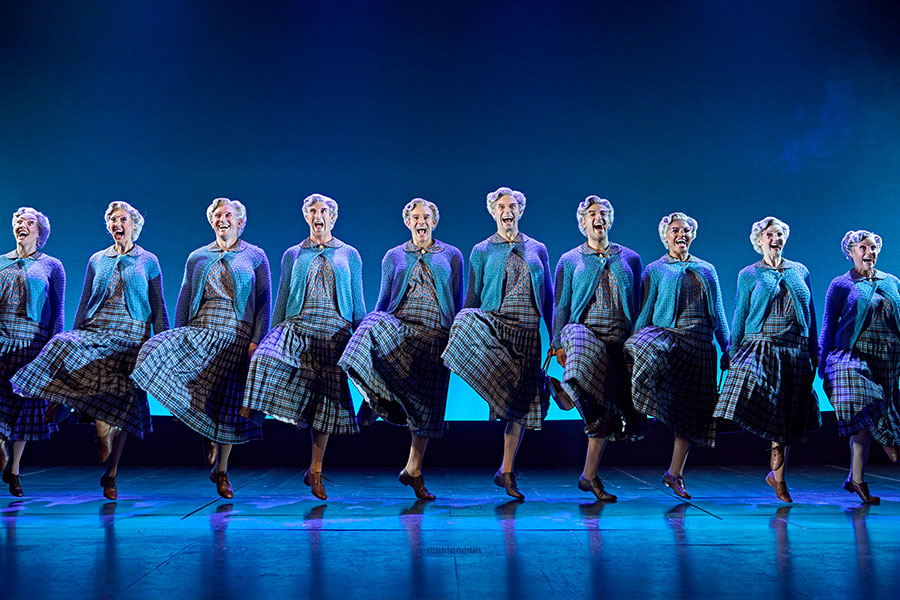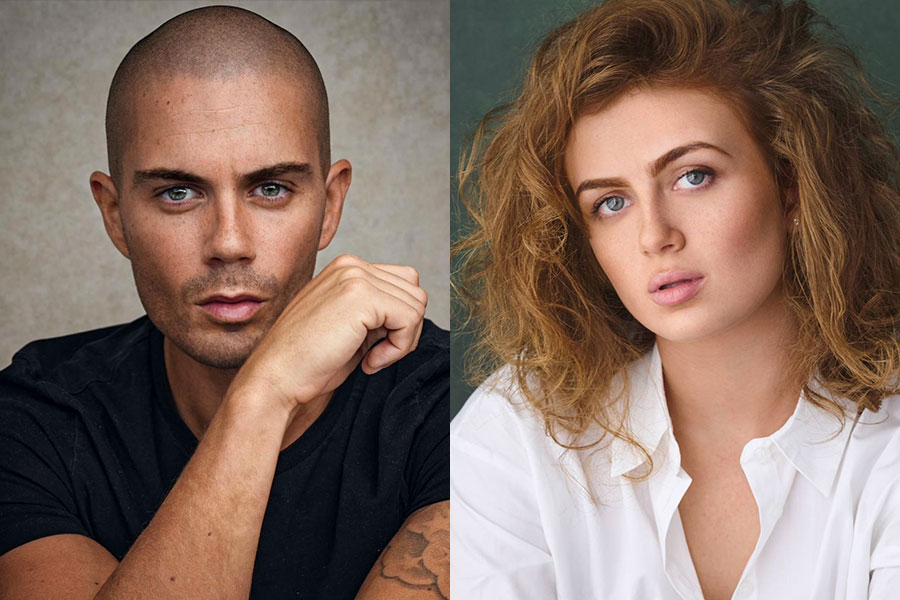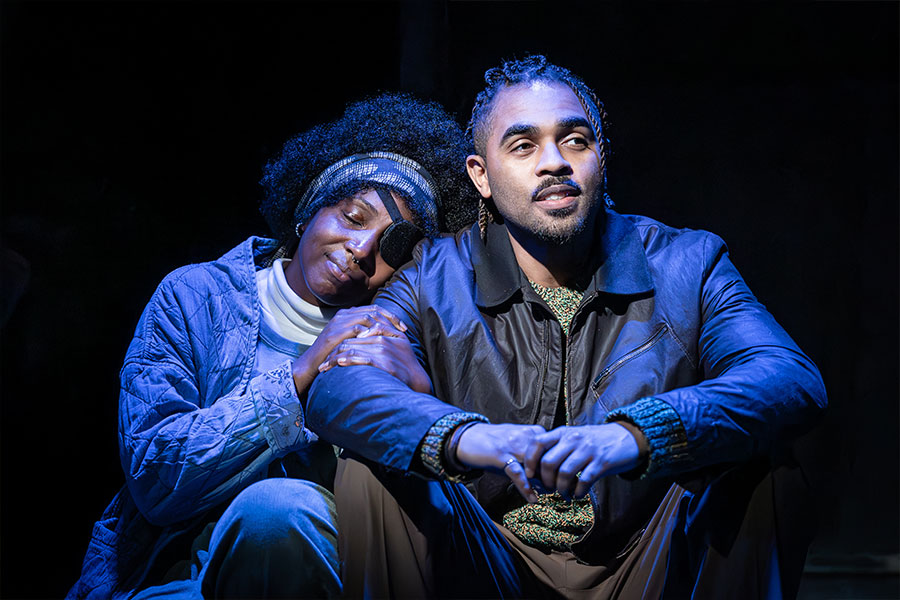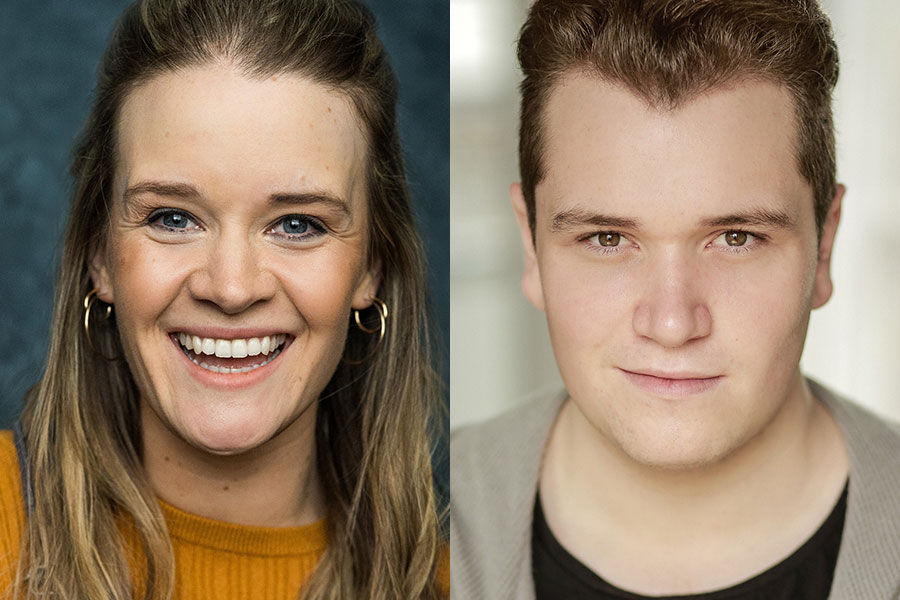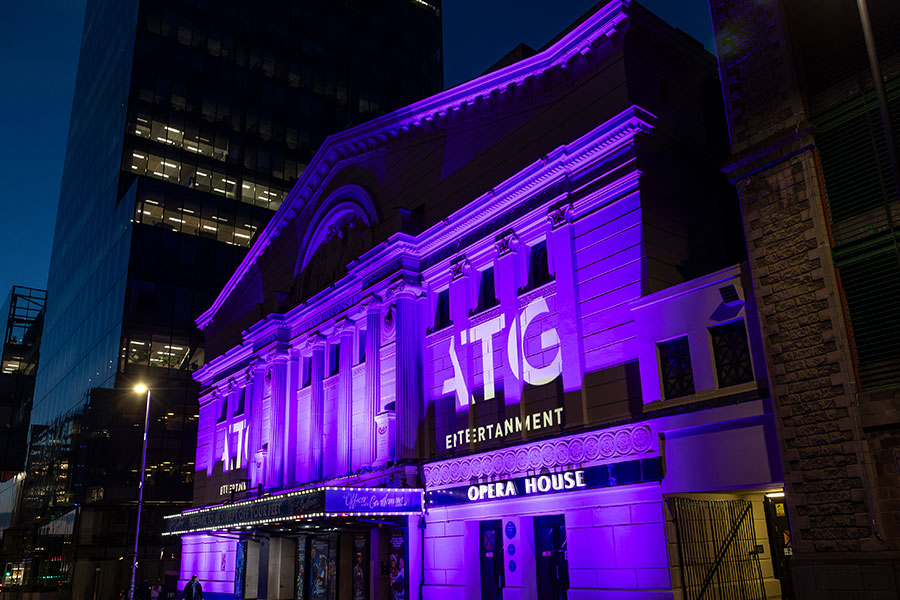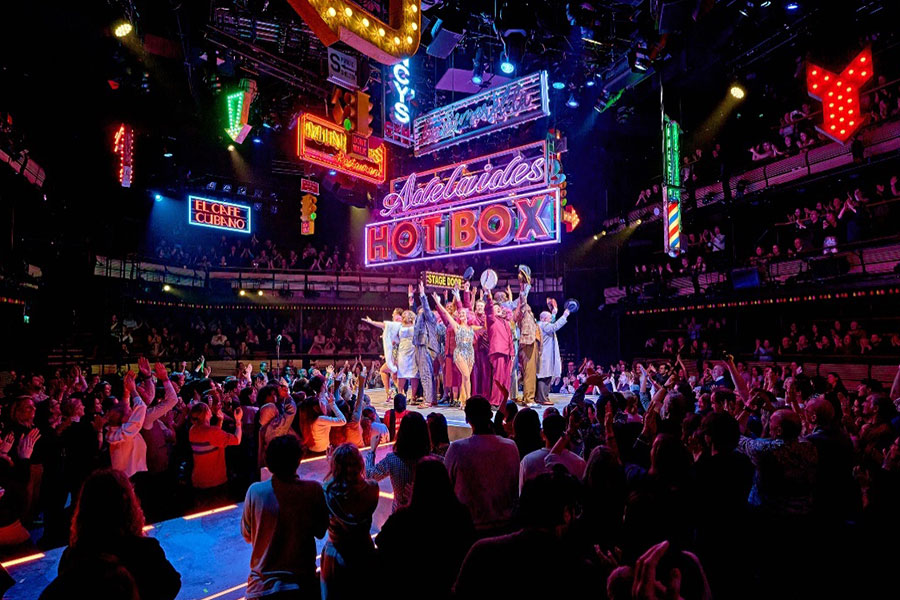Brief Encounter With … Ian McKellen
Ian McKellen has taken a break from filming The Hobbit in New Zealand to star in The Syndicate, Mike Poulton’s new version of Eduardo De Filippo’s 1960 dark comedy Il Sindaco Del Riono Sanità, which is currently on a UK tour.
Co-starring Oliver Cotton, Cherie Lunghi, Jane Bertish and Michael Pennington, The Syndicate tours to Malvern Festival Theatre (23-27 August), Cambridge Arts (29 August-3 September), Theatre Royal Bath (5-10 September) and Milton Keynes Theatre (12-17 September).
What appealed to you about this play, and this part in particular?
Eduardo De Filippo, who wrote The Syndicate, wrote about 40 plays. He was an actor in Naples and he had a company for a long time including his relatives who acted with him. And although a few of his plays have been done in the UK, this is the first time The Syndicate has ever been done here. It’s a very popular play still in Italy and I wanted to do it because I’d been in another of his plays, Napoli Milionaria, at the National Theatre some time ago and I remember Filumena and Saturday, Sunday, Monday, also at the National.
The Syndicate is a very enjoyable play to be in because it’s quite a large group of actors. There are many old friends of mine in it and the director’s an old colleague, Sean Mathias, and a lot of brilliant young actors so it’s what really I enjoy most about acting, working with friends, quite a lot of them, and going on tour. I don’t really enjoy sitting in London in the West End eight shows a week, I’d much rather be off around the country.
Do you think audiences will feel any sympathy for Don Antonio or is any sympathy people may have undermined by his eccentric form of justice?
In all Eduardo De Filippo’s plays there is a wonderfully exciting plot. You never know what’s going to happen next, it’s full of surprises. Every moment he tricks the audience and is always one step ahead so you might begin by thinking ‘Oh dear, Don Antonio is not the sort of man I’d like to meet down a dark alley in Naples, he gets involved with violence and so on’. But he’s unlike other criminal classes, or Mafia as we might like to think of him, in that he has a conscience, or he says he does, and that he’s trying to make the world a better place; he’s trying to stop violence rather than get involved with it. But it’s not up to me to tell the audience what they think. I just play the character and I think they’ll like him and they’ll find him amusing and they’ll be surprised by him and intrigued. But the morality, well it questions your own sense of morality.
His wife and his right hand man are treated terribly by him – and yet he takes on the causes of strangers – what do you think the personal effect is on Don Antonio when he has so many responsibilities and everyone wants a piece of him?
It’s very late in his life, he’s 75 years old, he’s had a hard life, he lived abroad in America for a long time and he got involved with the criminal classes but he’s been back in Naples now for 40 years or more, during which time he’s been organizing his cohorts to try and make the world a better place for the disadvantaged people of Naples. It’s just still the aftermath of the war when of course it had been occupied by enemy forces, there had been a lot of bombardment of the city, and the city hasn’t really got itself back into anything that’s properly organized and so Don Antonio does his best to help people who he thinks the law and the establishment have let down.
I gather it’s still the case in his district inner-city of Naples which is still a rather dangerous place to go. So it’s fiction but it smacks of the truth and what life was really like there and I think that’s very appealing and during the course of the play the audience can really feel ‘oh, that’s what it’s like to live in Naples’ rather than just visit it as a tourist.
You’ve done an incredible amount of touring in the UK in your career – but it must become increasingly difficult to find time to fit this kind of activity around all your other commitments. How have you managed to fit this project into your schedule?
Well the big job I’m doing at the moment is filming The Hobbit in New Zealand, now that’s a precursor to Lord of the Rings which I was in some years ago. But before I agreed to return to Gandalf, the wizard, I said “look I must be able to do a play” because I don’t feel quite sustained as an actor unless I’m looking forward to doing a play. So I’ve just come back from New Zealand especially to do this play and I’m just managing to fit it in and go to Chichester and do the tour. I’m at an age where I think I’m still fit but I think I don’t know, any day now I might break an ankle or break a leg or something might happen to me and I won’t be able to work again in the theatre at the rate I do so I’m just very happy to be doing it.
You studied at Cambridge where the show visits, have you performed there much since you were a student and do you feel nostalgic about the city and going back there?
The Cambridge Arts is a very dear place to me. As an undergraduate over 50 years ago I worked there because we undergraduates were allowed to perform in the professional theatre every so often. And yes, I’ve been back as an actor but this year it’s actually 50 years since I left Cambridge and I’ve been acting ever since. Personally it’s rather appropriate that I’m just going back to my roots and I haven’t worked there as often as I would have liked over the years. I can’t think when I was last there but I’ve been there on and off, helping them raise funds sometimes – it’s a theatre that needs support.
You’ve tackled many of the ‘big’ stage roles and classic texts, where does The Syndicate sit in the canon of work you have performed – is it a future classic?
Eduardo De Filippo who wrote The Syndicate is one of the great forces of European theatre and he’s been a little bit neglected in this country. He’s still immensely popular in Italy and I’m sure there’s a production of The Syndicate going round there as we speak. And for those who like to keep in touch with popular plays that aren’t much seen here this is a perfect opportunity. It’s very available. I think as you sit there you think ‘Oh! This is what a well made play is’ and we’re finding in rehearsal that it’s not like doing a new play – ‘oh I wonder how this is going to work’ – you can absolutely see why this works. The dramatic climaxes are tremendous. The comedy is firmly in place, all the different characters with their problems and how Don Antonio helps them are clearly on display. It’s a very easy play to sit back and enjoy. But it’ll give the audience a few shocks en route to the climax which I won’t spoil by saying what happens.
Do you think your fame as a film actor has brought new audiences to the theatre?
I’ve always hoped that anyone who had enjoyed seeing me on film might be intrigued to find me in the theatre but of course the films I’ve done have had an international impact. But I know people are coming over from South America and they’ve booked their tickets in Milton Keynes! They weren’t able to get in at Chichester because they’re sold out.
Does the contrast between some of your stage and film choices ever make you feel like you are leading a double life or is it all part of the same rich tapestry of your acting career?
Whether I’m doing TV or radio, in a theatre large or small or on the big screen, it’s all the same to me, it’s all acting. And I’ve been very very lucky perhaps rather late in life to be able to work in all the different mediums. So no, each has its own challenges and although I can’t imagine not working in the theatre, I know a lot of actors in my generation who think ‘Oh, it’s so much easier to do a film’. You get very well looked after as a film actor; there’s a car to take you to and from work, there’s free food and as for the responsibilities of being on form the moment the curtain goes up, it’s not quite the same in that it’s a little bit more leisurely in the cinema. But of course the thrill for anyone who likes theatre of hearing the audience and looking forward to telling them the story doesn’t go away.
Do you have time to go to the theatre, or the cinema? What do you engage with as an audience member? Or do you spend any free time you have doing completely different things?
I love going to the theatre, that’s how I first got intrigued by acting because I wanted to find out how it was done. I do see a lot of theatre but the only disadvantage is that my first responsibility I feel is to go and see friends when they’re working and sometimes I miss really successful shows that I would have enjoyed simply because I don’t know anyone in them and I’m busy going round the corner up and down the country to see friends. And whilst we’ve been rehearsing The Syndicate in London, the part is such a large one and I’m having to knock the words into my noddle that evenings when I might have otherwise gone and seen friends act I’ve been at home with my script.
So there’s lots I’d like to see at the moment and coming back from New Zealand where I’ve been filming The Hobbit, a place where there isn’t much live theatre, I realise how lucky I am to be in London where there is so much of it or indeed in the UK, there’s so much theatre still going on. We are the theatre centre of the world from that point of view.
– Ian McKellen was talking to Clair Chamberlain.




